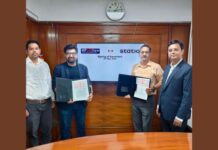The emergence of electric tractors represents a critical step toward sustainable agriculture, promising to revolutionize farming practices with clean energy solutions. However, the journey to widespread adoption is far from seamless. A significant challenge lies in overcoming supply chain bottlenecks that hinder the efficient manufacturing and delivery of these advanced machines. These bottlenecks, stemming from the complexities of sourcing materials, global logistics, and production constraints, underscore the need for robust strategies to ensure the growth of this transformative industry.
At the core of the supply chain issues is the dependency on critical raw materials required for electric vehicle (EV) batteries, such as lithium, cobalt, and nickel. These materials are central to the performance and efficiency of EV tractor batteries, but their extraction and processing are concentrated in specific regions, creating vulnerabilities. Geopolitical tensions, export restrictions, and limited mining capacities often disrupt the steady flow of these essential resources. Moreover, ethical concerns surrounding labor practices in some mining operations add another layer of complexity, as manufacturers seek to balance efficiency with ethical sourcing standards.
Global logistics further exacerbate the supply chain challenges. The COVID-19 pandemic exposed the fragility of international transportation networks, leading to delays and rising costs for shipping components across borders. While demand for EV tractors is increasing, manufacturers often face delays in receiving key parts, such as semiconductors, motor components, and specialized electronics. These delays cascade through the production process, extending lead times and reducing the ability to meet market demands promptly.
The semiconductor shortage, in particular, highlights the interconnected nature of supply chain bottlenecks. Modern EV tractors rely heavily on sophisticated electronic systems for battery management, navigation, and automated controls. The global chip shortage, driven by surging demand from multiple industries, has strained the availability of these critical components. This shortage not only increases production costs but also limits manufacturers’ ability to scale operations.
Manufacturing bottlenecks also arise from the lack of localized production capabilities in many regions. EV tractor production often depends on a global network of suppliers for various components, leading to logistical inefficiencies and increased costs. Establishing regional manufacturing hubs closer to demand centers could alleviate these challenges, but such initiatives require significant investment and time to implement.
Labor shortages and skill gaps in the EV manufacturing sector further complicate the situation. Producing EV tractors demands a workforce skilled in advanced manufacturing techniques, battery technology, and software integration. However, the rapid growth of the EV industry has outpaced the availability of adequately trained personnel. This scarcity not only slows down production but also increases labor costs, adding pressure to an already strained supply chain.
Sustainability requirements and regulatory compliance also contribute to supply chain bottlenecks. Governments and organizations worldwide are imposing stricter environmental standards for EV manufacturing, including the sourcing of raw materials and disposal of waste. While these measures are essential for ensuring long-term sustainability, they require manufacturers to adopt new processes and technologies, often leading to delays and higher costs in the short term.
Despite these challenges, there are promising solutions on the horizon. Investments in recycling technologies for EV batteries are gaining momentum, offering a way to reduce reliance on newly mined materials. Closed-loop recycling systems allow manufacturers to recover valuable materials from used batteries, creating a more sustainable and resilient supply chain. Additionally, advances in alternative battery chemistries, such as solid-state or sodium-ion batteries, could diversify material requirements and reduce dependency on scarce resources.
Digitalization and artificial intelligence are also playing a pivotal role in mitigating supply chain bottlenecks. Predictive analytics, for instance, enables manufacturers to forecast demand and optimize inventory management, reducing waste and improving efficiency. Blockchain technology offers transparency and traceability in sourcing, addressing ethical concerns and streamlining procurement processes.
The road to overcoming supply chain bottlenecks in EV tractor manufacturing requires collaboration across industries and borders. Stakeholders must invest in innovation, sustainability, and workforce development to build a resilient ecosystem. By addressing these challenges head-on, the EV tractor industry can unlock its full potential, driving the global transition toward sustainable and efficient agriculture.

By Pankaj Goyal, Co-founder and COO of AutoNxt Automation
















